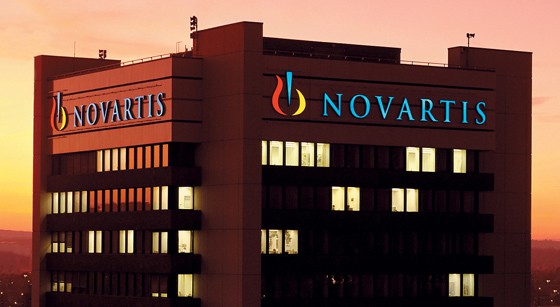
GlaxoSmithKline has sold rights to use its ofatumumab antibody in autoimmune diseases to Novartis in a $1bn agreement.
Novartis gained rights to Arzerra’s (ofatumumab) cancer indications when it took over GSK’s oncology portfolio earlier this year, but the new agreement gives it worldwide rights to the drug in additional indications such as multiple sclerosis.
Novartis will pay $300m upfront to Glaxo for ofatumumab, followed by another $200m after the start of late-stage clinical trials of the drug in MS. In addition, GSK could also see up to $534m in milestone payments tied to development goals, as well as royalties of up to 12% on sales.
As an MS treatment, ofatumumab is racing to market with Roche’s rival drug ocrelizumab, which is on course to be filed for approval in its first markets later this year or early in 2016 after positive results in two phase III studies.
Both drugs target CD20-positive B cells, a type of immune cell thought to play a central role in the destruction of the myelin sheath surrounding nerve cells that is the primary pathological feature of MS.
Decision Resources has suggested that ocrelizumab could eventually become the treatment of choice in MS patients whose disease has started to progress despite treatment with first-line therapies, such as Biogen’s oral drug Tecfidera (dimethyl glutamate) and Novartis’ own Gilenya (fingolimod).
While ofatumumab is a couple of years behind Roche’s drug as it is in phase II trials for MS, Novartis believes that as a fully-human antibody ofatumumab may offer some advantages over ocrelizumab, which is an animal antibody that has been humanised.
It also has a dosing frequency of one injection per month using a low-dose of the drug, while Roche’s drug uses a higher dose every six months. Taken together, that could translate to greater tolerability and in particular a lower chance of causing unwanted immune reactions, the company suggests.
As a cancer treatment Arzerra achieved only minimal sales, making just over £50m last year as a therapy for chronic lymphocytic leukaemia (CLL) thanks to strong competition from Roche’s Rituxan (rituximab), which also targets the CD20 receptor.
Novartis is hoping to expand the use of the drug both as a cancer therapy and also in auto-immune disorders, with trials ongoing in skin condition pemphigus vulgaris as well as eye disorder neuromyelitis optica.
Meanwhile, in cancer the drug could also see its use expanded into first-line treatment of CLL and also as a maintenance treatment for patients with this form of cancer, as well as for follicular lymphoma (FL), diffuse large B-cell lymphoma (DLBCL) and Waldenstrom’s macroglobulinemia (WM).
Ofatumumab was originally developed by Denmark’s Genmab.




